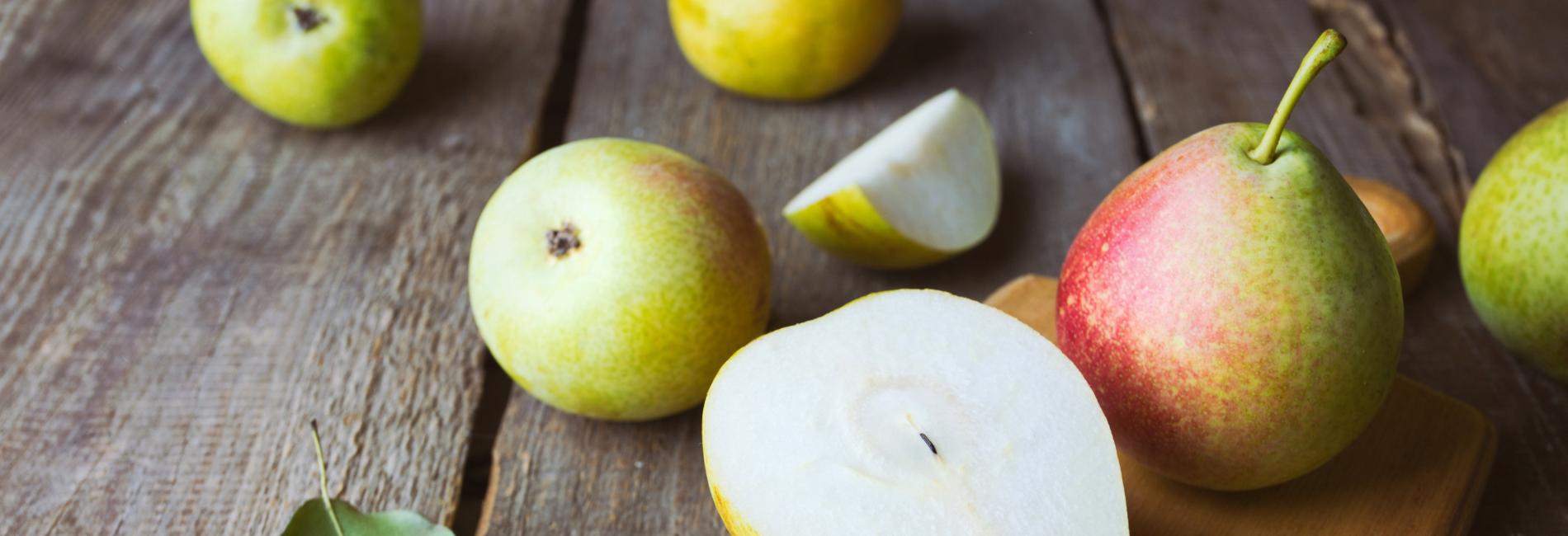Pears are a beloved fruit known for their sweet, soft texture and refreshing juiciness. Often enjoyed as a snack or incorporated into both savory and sweet dishes, pears are also rich in nutrients that support digestion, immunity, and overall health. But for those following a low-acid or alkaline diet, the question remains: Are pears acidic? The answer is yes—but only mildly. More importantly, pears are alkaline-forming in the body, which is a crucial distinction that many natural health experts emphasize.
In this article, we’ll take a closer look at the acidity of pears, their digestive benefits, and why they are one of the best fruits for people looking to improve gut health, reduce inflammation, and support pH balance naturally.
What Is the pH of Pears?
The pH scale measures how acidic or alkaline a substance is, with values ranging from 0 to 14:
-
0–6.9 is acidic
-
7 is neutral
-
7.1–14 is alkaline
Pears typically have a pH range of 3.5 to 4.6, making them a "low-acid" fruit. This places them in a mildly acidic category, but significantly lower in acidity compared to fruits like citrus. For context:
-
Lemons have a pH of around 2.0, making them highly acidic.
-
Pineapples fall between 3.2 and 4.0.
-
Pears, on the other hand, are more neutral compared to these more acidic options.
What’s important to remember is that while pears do contain some natural fruit acids, they are alkaline-forming when metabolized in the body. This means that although they might taste acidic, they actually help neutralize the body’s acid load rather than adding to it. This unique aspect of pears makes them particularly beneficial for digestive health.
Acidic vs. Alkaline-Forming Foods: Why It Matters
The concept of acid-forming vs. alkaline-forming foods is an essential part of many natural health and holistic nutrition practices. In modern diets, many foods tend to be acid-forming—meats, sugar, dairy, and processed foods all contribute to an acidic environment in the body. Over time, a diet high in acid-forming foods may lead to systemic inflammation, bone demineralization, digestive imbalances, and increased risk of chronic diseases.
Alkaline-forming foods, on the other hand, help to buffer the acid load in the body. These foods support kidney function, promote bone health, and may help relieve symptoms of conditions such as acid reflux, joint pain, and even fatigue. Alkaline-forming foods help maintain an optimal pH balance, which is crucial for the body’s overall health.
Pears are a prime example of an alkaline-forming food. Despite their initial acidity, the minerals in pears—like potassium, magnesium, and calcium—help neutralize the acid in the blood and urine, leading to a more balanced pH. This makes pears an excellent option for those looking to reduce inflammation and support a more alkaline, balanced internal environment.
According to the PRAL (Potential Renal Acid Load) score, which measures how a food affects systemic pH, pears are among the top alkaline-forming fruits. This means that pears have a net alkalizing effect on the body after digestion, helping reduce the acid load and promoting a healthy pH balance.
The Digestive Benefits of Pears
Beyond their mild acidity, pears are incredibly beneficial for digestion. If you're asking not just “Are pears acidic?” but also “Are they good for digestion?” — the answer is a resounding yes. Pears provide several key digestive benefits:
-
Rich in Soluble Fiber
Pears are an excellent source of fiber, containing about 5–6 grams of fiber per medium fruit. The fiber in pears is primarily soluble, which means it dissolves in water to form a gel-like substance. Soluble fiber, like pectin, nourishes beneficial gut bacteria and supports healthy digestion by improving stool consistency and regularity.
Fiber also helps to regulate blood sugar levels and supports a healthy microbiome, which plays a critical role in immune function, digestion, and mental well-being. For those looking to improve digestive health, pears are a simple, effective addition to the diet.
-
Gentle on the Stomach
Unlike more acidic fruits like citrus, which can irritate the digestive tract and trigger reflux, pears are generally well-tolerated by people with sensitive stomachs. Their low acidity and high fiber content make them a soothing option for those with conditions like GERD (gastroesophageal reflux disease) or IBS (irritable bowel syndrome). Pears are even recommended during GI recovery diets, as they are easy to digest and non-irritating. -
Naturally Anti-Inflammatory
Pears contain a variety of flavonoids, including quercetin, which have anti-inflammatory properties. Quercetin has been shown to reduce inflammation in the gut lining and support immune function. Since chronic inflammation is linked to many health issues, including digestive disorders, adding pears to your diet can help reduce inflammation naturally. -
Low Glycemic Load
In addition to being alkaline-forming, pears are low on the glycemic index, meaning they have a minimal impact on blood sugar levels. This makes pears an excellent choice for individuals with diabetes or insulin resistance. Unlike many other fruits, pears won’t cause a rapid spike in blood glucose levels, making them a safe and nourishing option for those managing blood sugar levels.
How Acidic Are Common Fruits?
To help illustrate how pears compare to other fruits in terms of acidity, here’s a quick chart comparing the pH of common fruits and whether they are acid- or alkaline-forming in the body:
|
Fruit |
pH Range |
Acid/Alkaline-Forming |
|
Lemon |
2.0–2.6 |
Alkaline-forming |
|
Blueberry |
3.1–3.4 |
Acid-forming |
|
Pineapple |
3.2–4.0 |
Acid-forming |
|
Pear |
3.5–4.6 |
Alkaline-forming |
|
Apple |
3.3–4.0 |
Alkaline-forming |
|
Banana |
4.5–5.2 |
Alkaline-forming |
Pro Tip: Pears pair beautifully with other alkaline-forming foods like leafy greens, almonds, and avocados to create well-balanced meals or smoothies that support your body’s natural pH balance.
How to Eat Pears for Maximum Health Benefits
If you’re incorporating pears into your diet for their alkaline-forming benefits, here are some nutritionist-approved tips:
-
Eat them raw with the skin on: Most of the fiber and antioxidants are found in the skin of pears. Eating them raw maximizes their digestive and health benefits.
-
Blend into a green smoothie: Pair pears with spinach, cucumber, and coconut water for a nutrient-packed, pH-balancing drink.
-
Poach with cinnamon and cloves: This makes for a warming, digestion-friendly dessert that’s perfect for soothing the stomach.
-
Slice into a quinoa salad: The sweetness of pears balances the earthy, nutty flavor of quinoa, creating a delicious, fiber-rich salad.
Tip: If you're following an alkaline diet, try combining pears with other alkaline-forming foods like leafy greens and nuts to create meals that balance both flavor and health benefits.
Pears for People with GERD or Acid Reflux
For individuals managing acid reflux or GERD, pears are one of the few fruits that are often recommended. Thanks to their low citric acid content and high fiber, pears provide several digestive benefits for those with reflux:
-
They help reduce reflux symptoms by soothing the digestive tract.
-
Pears can soothe irritated throat tissue caused by stomach acid.
-
Their fiber content helps normalize bowel movements and supports healthy digestion.
However, as with any food, individual reactions can vary. People with SIBO (small intestinal bacterial overgrowth) or IBS (irritable bowel syndrome) may need to be mindful of FODMAP sensitivity, especially when consuming unripe pears.
Best Types of Pears (and How to Choose Them)
There are over 3,000 varieties of pears, but here are a few low-acid, gut-friendly favorites:
|
Variety |
Flavor Profile |
Best For |
|
Bartlett |
Juicy, sweet |
Eating raw, poaching |
|
Anjou |
Firm, mild |
Baking, roasting |
|
Bosc |
Dense, honey-sweet |
Slicing for salads |
|
Asian |
Crisp, refreshing |
Snacking, gut support |
Pro Tip: Allow pears to ripen at room temperature until the neck gives slightly to pressure. After ripening, store them in the fridge to preserve their flavor.
Are Pears Acidic in Cooking?
Cooking pears doesn’t increase their acidity—in fact, it may make them even easier to digest. Whether you stew, bake, or poach pears, the process helps break down some of the fiber, making them ideal for people recovering from illness or easing back into solid foods.
Bonus: Cooking pears with warming spices like ginger or cinnamon not only enhances their gut-soothing benefits but also aligns with traditional uses. In Traditional Chinese Medicine (TCM), poached pears with ginger are often used to treat dry cough, lung heat, or dehydration—a testament to pears' healing properties beyond just their nutritional profile.
Final Verdict: Are Pears Acidic?
So, are pears acidic? Technically, yes—they contain a small amount of natural fruit acid. But in practice, pears are alkaline-forming, gentle on digestion, and full of nutrients that support gut health and a balanced internal pH.
For people following an alkaline diet, managing reflux, or simply looking for an anti-inflammatory fruit to enjoy daily, pears are a clear win.



